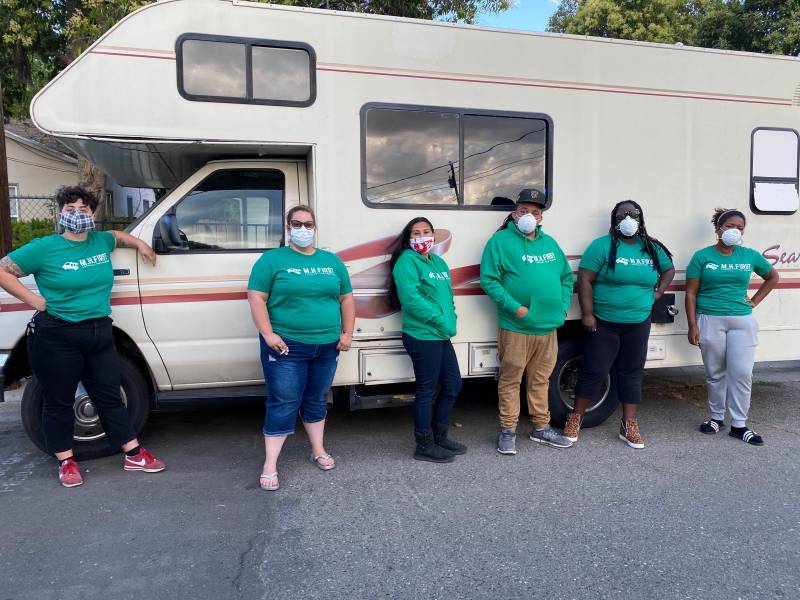The idea of defunding and replacing the police has gained traction recently as protests have erupted across the country following the police killing of George Floyd in Minneapolis last month. But this isn’t a new idea: In January, the Sacramento chapter of the Anti Police-Terror Project started a program called “Mental Health First” to provide trauma-informed, community-based and peer-driven intervention to respond to people in crisis without the police.
The program is made up of a few dozen volunteers in Sacramento who do street outreach, answer calls, texts and social media requests to respond to crises all night on the weekends.
To find out how that program works and what they’ve learned so far, The Bay’s Devin Katayama spoke with Niki Jones, a peer crisis counselor and volunteer coordinator with “Mental Health First,” and Asantewaa Boykin, co-founder of the Anti Police-Terror Project.
If you or someone you know needs a non-police response to a mental health crisis in Sacramento, you can reach “Mental Health First” at 916-670-4062 on Friday through Sunday between 7 p.m. and 7 a.m.
This interview has been edited for clarity and brevity.
How “Mental Health First” Started
Boykin: Long before we decided to make, or even embark upon, making “Mental Health First” an official thing, there was just this thing that existed in our community where we just knew we took care of each other, right? So when one of our comrades was feeling suicidal or was manic or depressed and not getting out of the bed, our initial response was, “How do we support them through this?” and not “How do we get them on a 5150 hold?”
